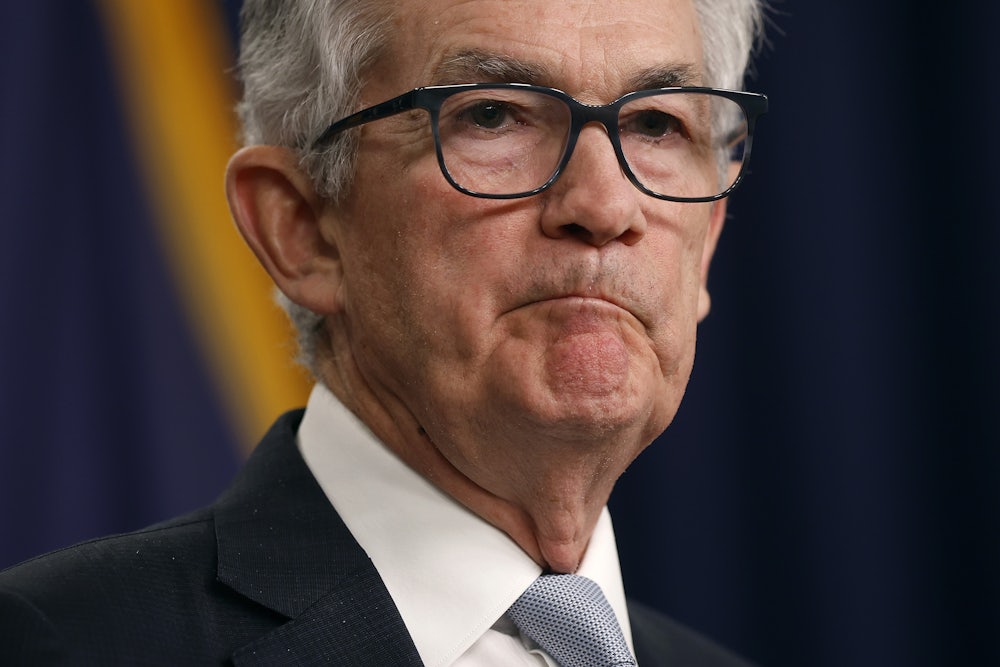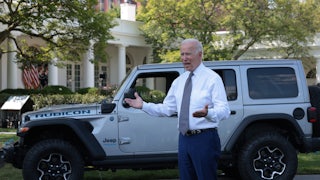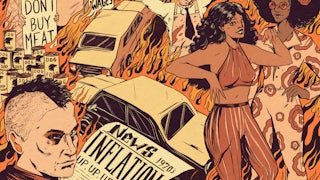The big news from the Federal Reserve on Wednesday wasn’t that it raised interest rates three-quarters of a point. Everybody knew it was going to do that, just as it had done in May, in July, and in September. The big news was that the Fed is less distressed about the prospect of runaway inflation than potential voters in next week’s midterm elections.
The signal that the Fed expects inflation to ease was in the following statement:
In determining the pace of future increases in the target range, the Committee will take into account the cumulative tightening of monetary policy, the lags with which monetary policy affects economic activity and inflation, and economic and financial developments.
Translation: “We’re probably done for the next while jacking up interest rates at this rapid rate. We don’t want to overshoot the mark and cause a recession if we can help it, and there’s a good chance what we’ve done already will bring inflation closer to a tolerable level.”
It would be an exaggeration to say the Fed has reverted to dovishness on inflation. The stock market leapt after initial reports of the Fed statement, then fell after Fed Chairman Jerome Powell said interest rates would probably have to rise higher next year than the Fed’s previously forecast “terminal rate” of 4.6 percent. The Fed isn’t done raising interest rates; it just won’t likely continue raising them quite so fast. That means the Fed thinks inflation, though it will remain a problem, won’t likely be as big a problem.
The inflation rate is actually falling. The consumer price index, the most commonly used inflation measure, peaked in June at 9.1 percent and has been dropping ever since. So has the Fed’s preferred measure, the personal consumption expenditures, or PCE, price index, which peaked in June at 7 percent. “Core” inflation, i.e., inflation minus volatile gas and food prices, is rising, and that’s not good. It rose from 5.9 percent in June to 6.6 percent in September according to the CPI. Core inflation is why Powell doesn’t want to be too dovish. But core inflation has risen only 0.1 percent since June according to the PCE. And anyway, it’s gas and food prices that weigh most heavily on voters’ minds when they worry about inflation.
Even as the Fed is starting to lose less sleep about inflation, the public is losing more sleep about it. Indeed, the increase in people worrying about inflation outruns the increase in inflation itself.
A Quinnipiac poll released Wednesday said the proportion of respondents who said inflation was the most urgent issue facing the country today was 36 percent. That’s up from 27 percent in an August 31 Quinnipiac poll, 33 percent in May, and 27 percent in February.
Since February 2022, the proportion of people who judge inflation the most urgent issue has risen 30 times faster (nine percentage points) than the CPI inflation rate itself (0.3 points).* When you look at core CPI inflation, the proportion of people who judge inflation the most urgent issue has risen 45 times faster (nine points) than the annualized inflation rate itself (0.2 points).
If you go by the PCE instead of the CPI, the disparity is less dramatic; the proportion of people who judge inflation the most urgent issue has risen more than twice as fast (nine points) as the inflation rate (3.924 points) and the core inflation rate (3.387 points). But voters are still worrying about inflation disproportionately to its actual increase.
Am I telling you to stop worrying about inflation? Of course not. Inflation is a real problem because it’s outrunning wages. Compensation costs (that is, wages plus benefits) rose 5 percent over the past year, while inflation increased 8.2 percent according to the consumer price index, and 6.2 percent according to the PCE. That stinks. Powell, unfortunately, remains fixated on the labor market, which, he said, “continues to be out of balance,” by which he means it remains too healthy. But not even Powell seems especially worried that we’re entering a 1970s-style wage-price spiral. You can worry that inflation’s eating into your paycheck, or you can worry that inflation will get worse, but it isn’t logical to worry about both at the same time, because the more inflation eats into your paycheck now, the less likely inflation will persist later.
When ordinary people worry about inflation, they do not, like Powell, worry that the labor market is too robust; they worry that it’s not robust enough to keep up with rising prices. And over the slightly longer term, as Paul Krugman pointed out Monday, real wages are rising a very little bit. Since February 2020 (that is, right before Covid hit), wages for nonsupervisory workers (that’s 80 percent of the workforce) rose 1 percent faster than the consumer price index. Krugman acknowledged that you can get a less cheering result when you compare compensation costs to PCE, but he also noted that you can get a more cheering result, depending on which indicators you choose.
The Fed has its critics, from the left (who think it’s too hawkish on inflation) and the right (who think it’s too dovish). I try not to assess any individual interest rate hike too deeply because I don’t have access to Fed data and I wouldn’t have sufficient expertise to evaluate it if I did. I’m a journalist, not an economist. But I’m fairly confident that the public shouldn’t worry about inflation more than the Federal Reserve—especially a Fed whose chairman was installed by a Republican president. Republicans worry more about inflation (or at least pretend to do so) than Democrats.
Midterm voters are more fixated on inflation than on access to abortion or Republican extremism. Abortion and GOP extremism are of concern primarily to the Democratic base. But these are the problems that are getting worse, and inflation is the problem that’s getting better. Why this may result in a late-breaking stampede to Republican candidates is a riddle I won’t try to solve.
* This article originally misstated the time period in question.






